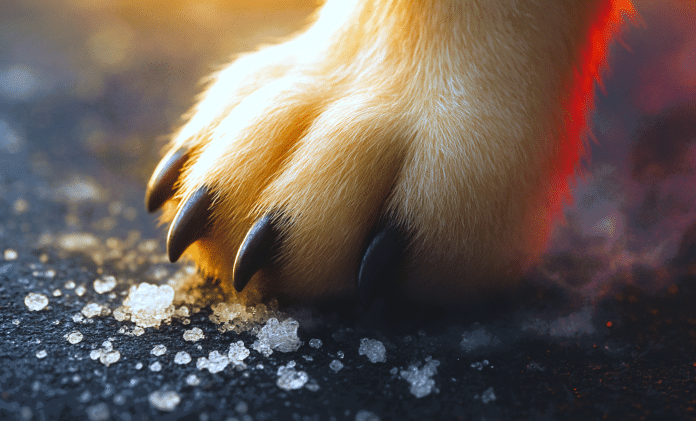Newark, NJ – As the first winter snows move into New Jersey, veterinarians are warning pet owners to take precautions when walking dogs on salted sidewalks and driveways. The same salt and chemical de-icers that protect people from slipping can burn paws, irritate skin, and cause serious illness if pets ingest them.
Most ice-melt products used across the Garden State contain sodium chloride, calcium chloride, or magnesium chloride—chemicals that can dry and crack paw pads. Even short walks can expose dogs to the sharp crystals that lead to cuts or irritation. When pets lick their paws afterward, they may swallow enough salt to trigger vomiting, diarrhea, excessive thirst, and lethargy, and in severe cases, seizures or kidney problems.
Veterinarians caution that some commercial ice melts contain heavy metals or industrial residues that add to the toxicity risk. Repeated exposure over the winter can lead to chronic paw injuries and internal damage if not addressed.
To protect pets, experts recommend rinsing paws with warm water after every walk and drying them thoroughly. Applying a paw balm or protective wax before heading outdoors can help create a barrier against salt, while trimming fur between the toes prevents buildup. Booties are also effective for dogs that tolerate them, and pet owners are encouraged to use chloride-free, pet-safe ice melts at home.
With freezing temperatures and scattered snow expected statewide through the weekend, veterinarians urge owners to watch for limping, licking, or reluctance to walk on treated areas. Even small amounts of exposure can cause discomfort, particularly for smaller breeds and older pets.
As New Jersey settles into its first winter weather, experts emphasize that the biggest seasonal threat to pets isn’t the snow itself—but the toxic materials used to melt it.





